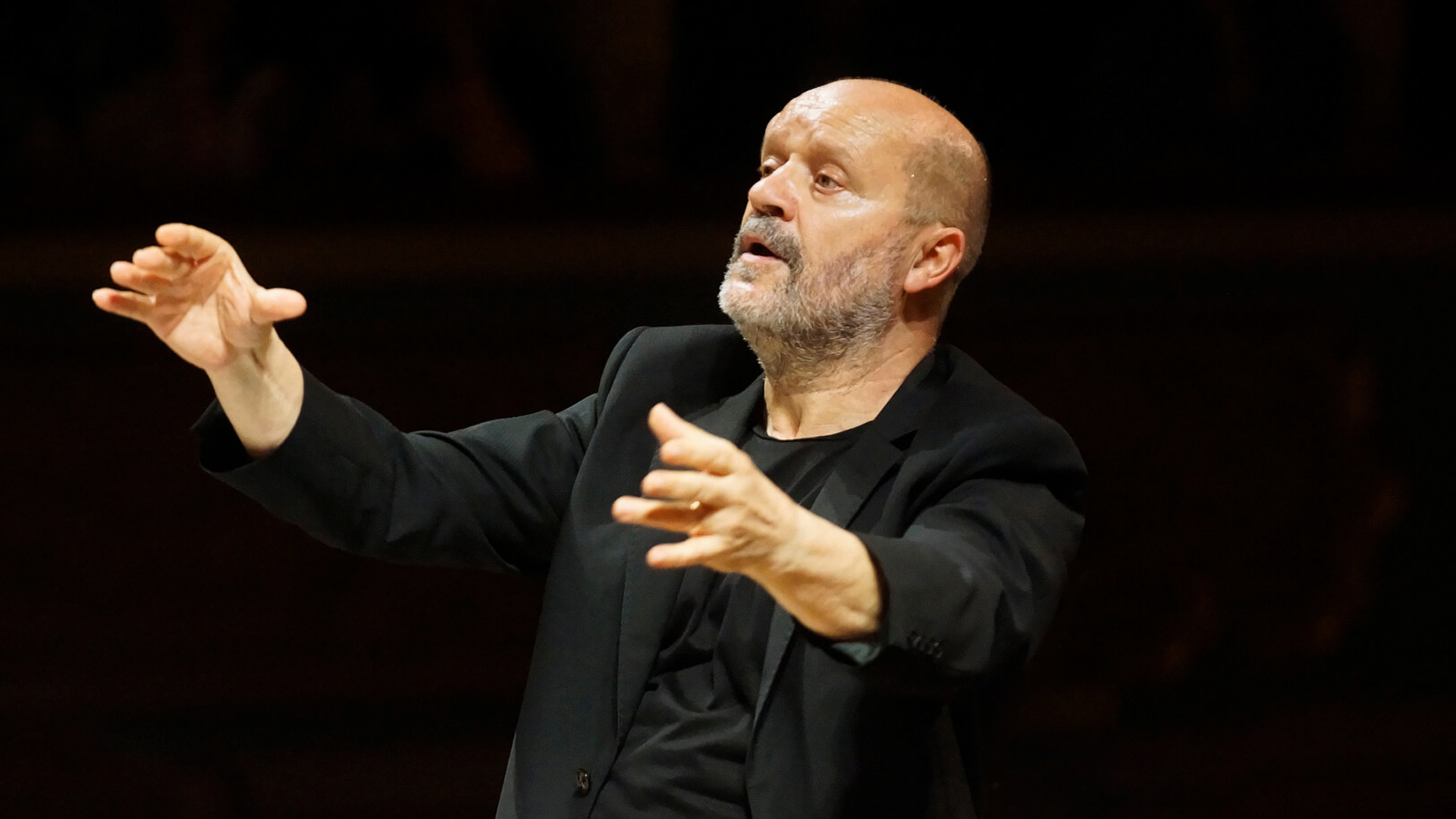ARVO PÄRT
Salve Regina
Littlemore Tractus
Spiegel im Spiegel
PĒTERIS VASKS
Plainscapes
ALFRED SCHNITTKE
Stille Nacht
PĒTERIS VASKS
The fruit of silence
Violin
Elisabetta Garetti
Cello
Federico Romano
Organ
Sirio Restani
Piano
Patrizia Priarone
Conductor and soloist
Claudio Marino Moretti
Opera Carlo Felice Genova Chorus
Salve Regina by Arvo Pärt is a musical piece for choir and organ composed in 2001. In May 2002, such a piece was premiered at the Cathedral of Essen in Germany, celebrating the 1150 years from the abbey’s foundation. (The composer wrote a following version for choir, celesta and strings orchestra ten years later, in 2011). The choice of such a text is attributed to the bishop of Essen, Hubert Luthe, who wished to celebrate the abbey with a hymn to the Virgin Mary. Pärt’s style, known for minimalism and a writing based on singing somewhere between monody and polyphony, is recognizable, although the composer intends here to create a crescendo that from the initial single lines gradually sees the harmonic structure build up with the participation of the entire choir until the final climax. The organ line also functions as accompaniment, albeit with some passages of invention that Pärt calls “some intriguing eccentricities in the organ part along the way.”
Several elements are common to Salve Regina and Littlemore Tractus, two compositions involving the same ensemble, choir and organ, and with which the composer experiments in the area of sacred music. Littlemore Tractus dates from just two years before Salve Regina, and was commissioned to mark the 200th anniversary of the birth of Cardinal John Henry Newman, a poet and prominent figure in Anglo-Saxon Catholic culture. The composition lasted two years, from 1999 to 2001, when the first performance was held at Littlemore Church, near Oxford. The text is taken from part of a sermon that Newman himself gave at Littlemore in 1843, in which the believer trusts in refreshment and peace after toil. Here, too, one can perceive a compositional process that expands from the single vocal line into the harmonization of the entire chorus, as well as the important influence of ambient music-a fundamental part of Pärt’s musical thought-which emerges fully in the spiritual character of the piece.
Spiegel im Spiegel (The Mirror in the Mirror) dates back to 1978, and is one of Pärt’s most famous pieces. It was originally composed for violin and piano, only to be later revived in a version for viola or cello and piano. In some ways a manifesto of Pärt’s poetics, Spiegel im Spiegel is based on the composer’s own technique of “tintinnabuli.” The term refers to the ringing of a bell (Latin tintinnabulum), which the composer reproduces through two primary elements: a first voice that reproduces in arpeggio form the tonic triad, and a second voice that proceeds in a diatonic pattern. In this piece the first voice is that of the piano, which incessantly repeats the tonic triads, while the violin proceeds to create a melodic line in response. The slow but steady pace, with subtle tension, gives it a meditative character; the song has become part of the soundtrack of several films and TV series, including 2011’s This must be the place and 2023’s Ted Lasso.
Plainscapes is a piece for choir, violin d cello by Latvian composer Pēteris Vasks published in 2002. The title is a reference to the plains of Latvia, landscapes that have been a source of inspiration for the composer on several occasions. The chorus is not entrusted with any text: the song develops by delineating an abstract and intimate atmosphere, over which the lines of the violin and cello weave. Vasks’ writing refers to the tonal tradition as much as to the languages of the late twentieth century, through a personal and inspired reworking even of traditional Latvian songs. Here again, a stylistic affinity with developments in ambient music emerges, a dimension that in Plainscapes emerges particularly in the vocal writing.
Stille Nacht (Silent Night) is one of the most famous Christmas carols; of Austrian origin, the song has been translated into many different languages and versions. In 1978 Russian composer Alfred Schnittke wrote his own version for piano and violin. The composer decided to reproduce the original melody while introducing a fundamental element of restlessness, however, and thus offering a nontraditional perspective. Central to the composition is the extensive use of dissonance, which continually breaks up the sweetness of the melody, as well as of a rebellious piano bass that acts as relentlessly as the chiming of a clock. The reinterpretation does not stand in contrast to the Christmas atmosphere, in fact Schnittke declared, “The meaning of the song Silent Night for me has not changed, it has just been supplemented by those distortions that add new atmospheric elements, which should not be perceived as offensive, but-although fundamentally sad-still Christmassy.”
Vasks’ The Fruit of Silence (Il frutto del Silenzio), was commissioned by the Schleswig-Holstein Music Festival and was first performed in 2013. The piece, for choir and piano, is inspired by the words of Mother Teresa. This is a consideration of the nature of silence and prayer, ways through which man finds his faith and thus peace. The text is composed of five symmetrical phrases, which Vasks’ music picks up with a meditative atmosphere oriented toward a religious-like spirituality. The very first piano arpeggios, before the choral intervention, are a quotation from Pärt’s Spiegel im Spiegel.
Ludovica Gelpi

